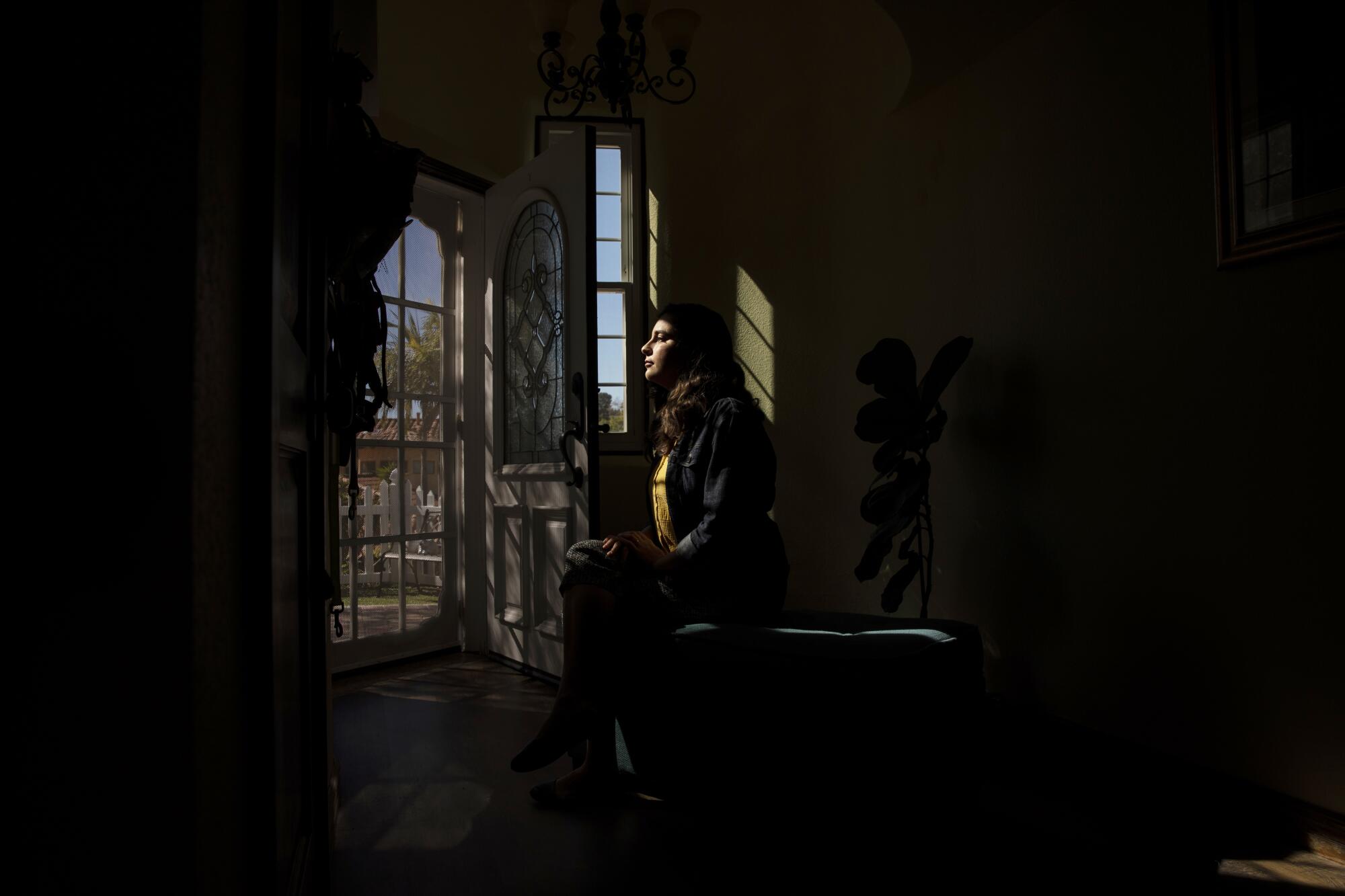
Immunocompromised and disability advocates say support is lacking for their health and safety concerns
Life in solitude has become the norm for Mount Helix resident Jillian Parramore as she sought to avoid contracting the coronavirus.
For nearly two years, the Disability Rights California board member has stayed at home, aside from the occasional car ride with her wife to run errands. Parramore is diagnosed with epilepsy, asthma and cerebral palsy, and the latter two put her at higher risk for respiratory complications from COVID-19.
Early in the pandemic, Parramore was laid off from her job as a school district adviser as she could no longer work in person, and she has since struggled to find consistent virtual work. Her wife now works longer hours to make up the difference so they can continue paying the mortgage on their home.
Parramore used to regularly see a physical therapist for her cerebral palsy and had doctor appointments every two months.
“All of that had to stop because, one, the hospitals were over flooded with people with COVID, and, two, it wasn’t safe for me to go to the hospitals,” Parramore said.
As soon as she was eligible, Parramore was vaccinated and subsequently boosted, but despite all her efforts, the disease found her anyway.
She invited a few close friends to her home for a New Year’s party with the caveat that all of them would take PCR tests for COVID-19 ahead of time.
“I had four people over — it was very exciting for me,” Parramore said. “One of my friends did not understand the assignment and opted to take a home test, which we know with the Omicron variant they’re not very effective.”
Soon after the party, Parramore got sick and was diagnosed with COVID-19. Although she has since tested negative for the virus, she continues to experience symptoms of long COVID.
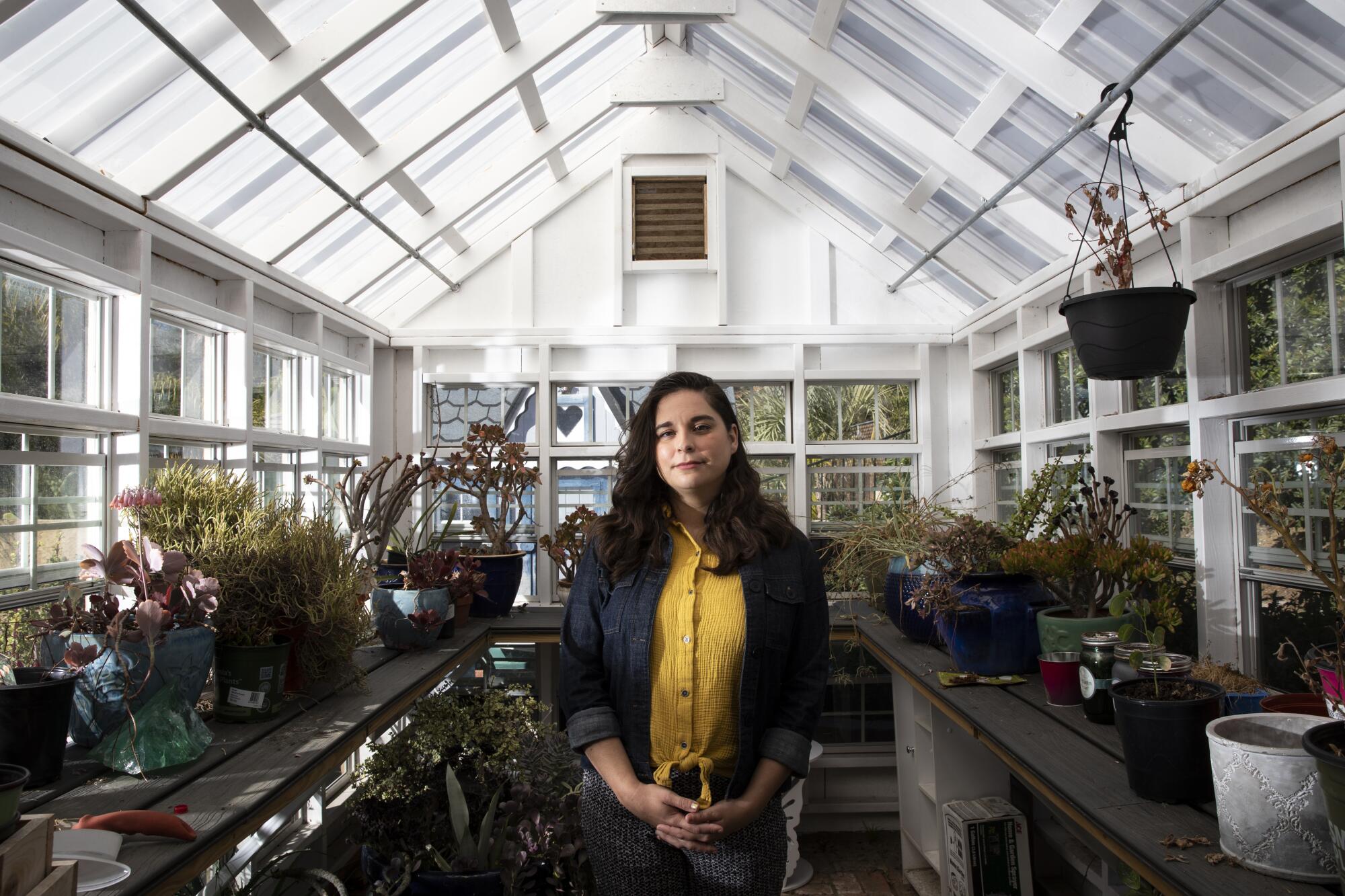
Parramore is one of approximately 26,000 immunocompromised people and one of 310,902 people living with disabilities in San Diego County, according to figures reported by local health officials. Nationally, there are close to 7 million immunocompromised adults making up about 2.7 percent of the total population, according to the American Medical Association.
Nearly two years into the pandemic, with many people clamoring to get back to normal, the most vulnerable sectors of the community are raising concerns about the current public health response not being inclusive enough.
“The disability community is almost being forgotten about when it comes to direction from the state and direction from the federal government,” said Eric Harris, director of public policy at Disability Rights California.
DRC advocates for and supports the rights of Californians living with disabilities, which Harris said has been even more important amid the public health response to the spread of the highly infectious Omicron variant.
Last month, Rochelle Walensky, director of the federal Centers for Disease Control and Prevention, cited a recent study that found more than 75 percent of COVID-19 deaths in fully vaccinated people occurred in those living with at least four pre-existing health conditions.
Days later, Dr. Anthony Fauci, the chief medical adviser to President Biden, stated in an interview that “Omicron — with its extraordinary, unprecedented degree of efficiency of transmissibility — will ultimately find just about everybody.”
“It almost feels like many people throughout the state and throughout the country are either ready to move on past the pandemic, or are talking as if the pandemic is either over or only people who are immunocompromised are the ones who are getting very sick and dying,” Harris said.
Both statements, paired with the CDC revising its guidance on isolation for asymptomatic people from 10 days to five, sparked talk on social media among people with compromised immune systems and disabilities, who criticized public health officials as being prejudiced.
“The fact is, we have a highly contagious viral disease that has wiped out hundreds of thousands of people; how do you not value those human lives?” Alyssa Salter said.
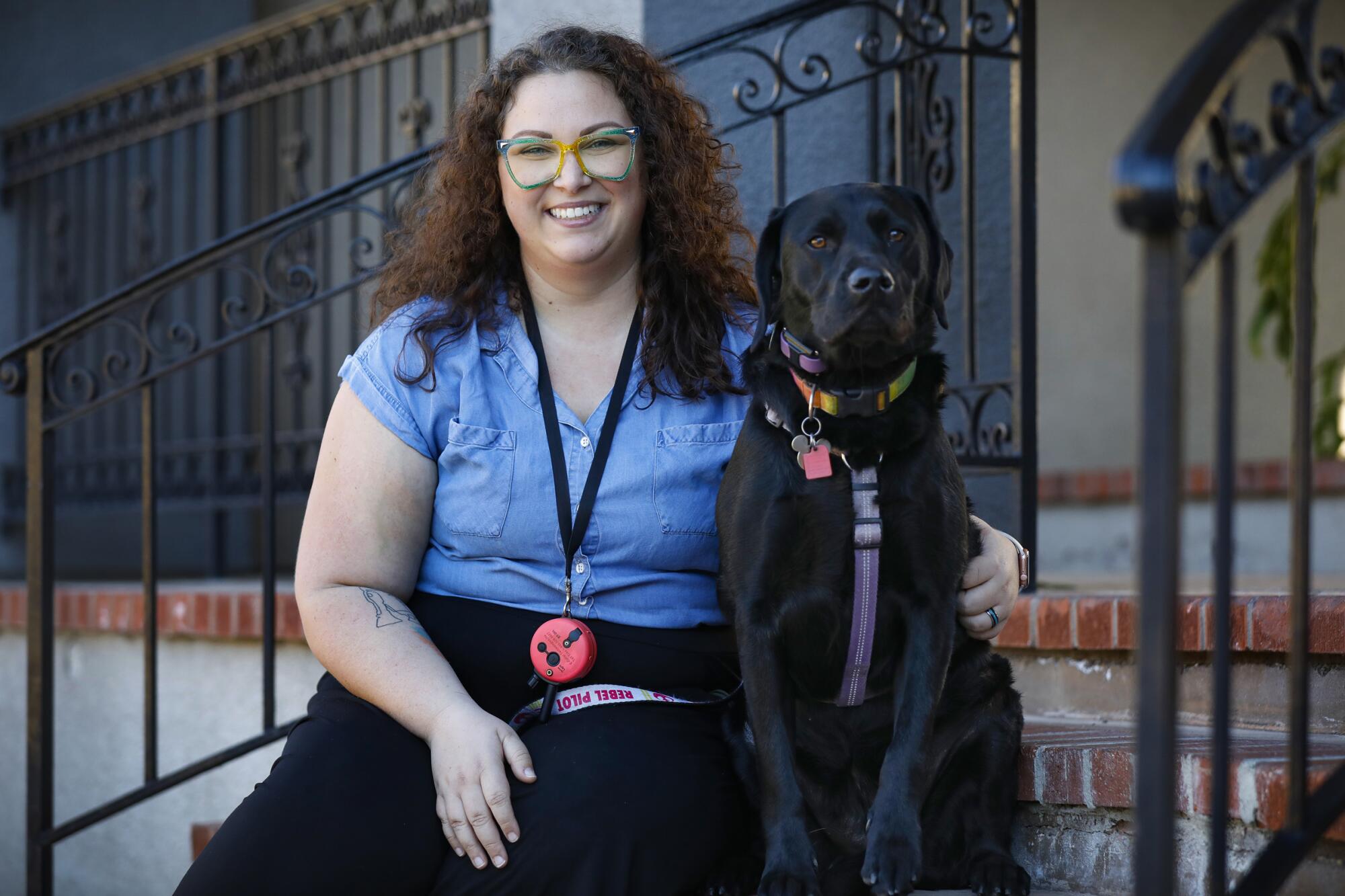
Salter, a Grantville resident, experiences gastrointestinal pain on a daily basis and has been diagnosed with hypermobile type Ehlers-Danlos syndrome (which causes chronic muscle and bone pain), mast cell activation syndrome (where mast cells release too many chemicals, triggering an allergic response), fibromyalgia, asthma, psoriasis (a chronic, autoimmune skin disease) and irritable bowel disease (which triggers the immune system and damages the intestinal wall).
During four years of college at Point Loma Nazarene University, Salter experienced 12 bouts of pneumonia. The last time Salter had a cold, it led to a sinus infection that permanently impaired the hearing in her left ear.
Given Salter’s health conditions and experience with past viruses, the possibility of contracting the coronavirus frightens her.
“When I get sick, it’s at least for six weeks and I have lingering symptoms for months,” Salter said.
At first, Salter felt as if the community was truly coming together to protect one another, especially those who are most susceptible to the worst effects of the virus. But lately, things feel more hopeless.
“I really appreciated living in California, because I felt like we were doing the bare minimum with mask mandates and asking people to stay away — and then I felt like everything gave away to capitalism,” she said.
Access to resources, health care remains an issue
Aside from concerns about immunity, accessibility during the pandemic remains an issue for those with physical disabilities.
Shopping in the best of times is difficult for Alex Montoya, who relies on two prosthetic arms and a prosthetic leg to navigate the world. He was born with three shortened limbs from a congenital birth defect caused by thalidomide, a medication used to treat morning sickness until it was taken off the market in the United States in 1962, according to Encyclopaedia Britannica.
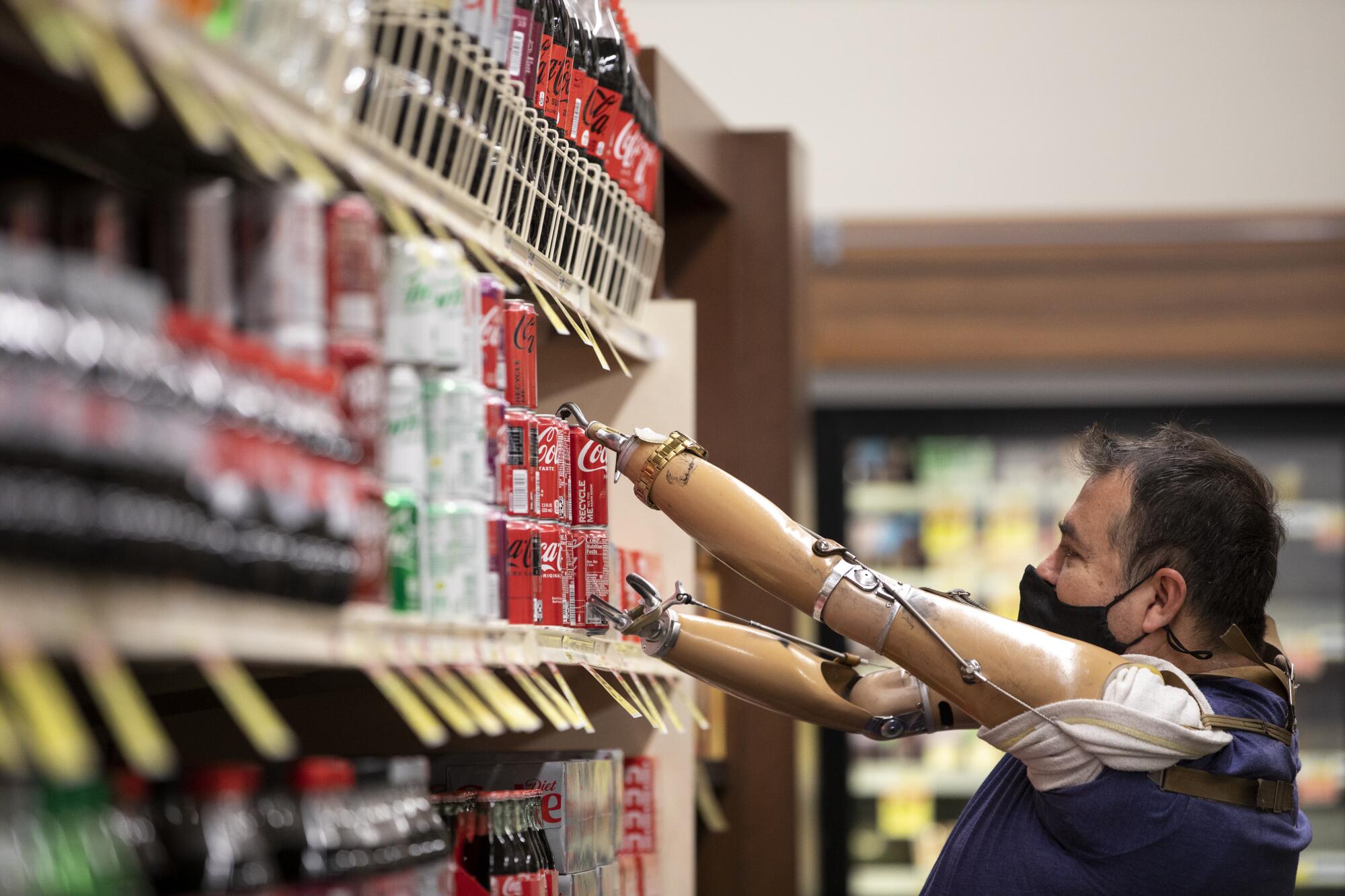
Montoya has a professional caregiver through the county of San Diego‘s In-Home Supportive Services program who helps him with his daily routine, so being careful and avoiding the virus has been important for both of them, to protect each other during the pandemic.
Because of his prosthetic limbs, Montoya is unable to drive, so he purposely found an apartment in downtown San Diego near an Albertsons supermarket to better access groceries.
“The store became like a mall on Christmas Eve — it was just filled with people,” he said.
Many stores reserved some hours for senior citizens and shoppers with disabilities in the first few months of the pandemic, but most stores — including the Albertsons where Montoya shops — no longer offer those.
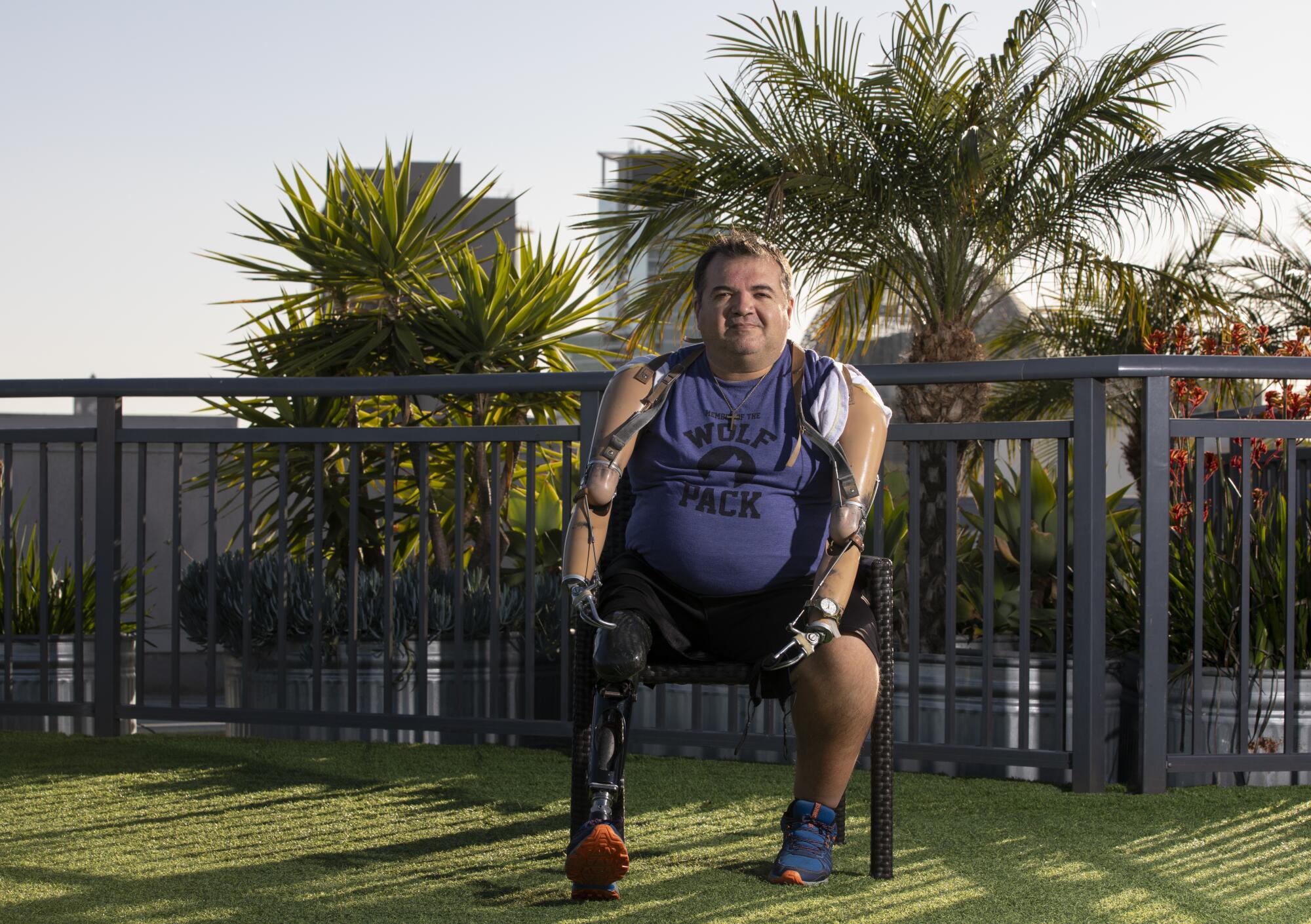
Chula Vista resident Syreeta L. Nolan, 35, said she has had difficulty accessing adequate health care while the hospitals remain impacted by a continuous influx of coronavirus patients.
Fibromyalgia, sciatica, carpal tunnel and tennis elbow all contribute to the physical pain she regularly experiences. She is currently being tested for myasthenia gravis, a chronic autoimmune disorder that causes skeletal muscles to become weak, according to Johns Hopkins Medicine.
“Accessibility seems to be something on the backburner, even though it’s something in the forefront for everyone that lives with disabilities,” she said.
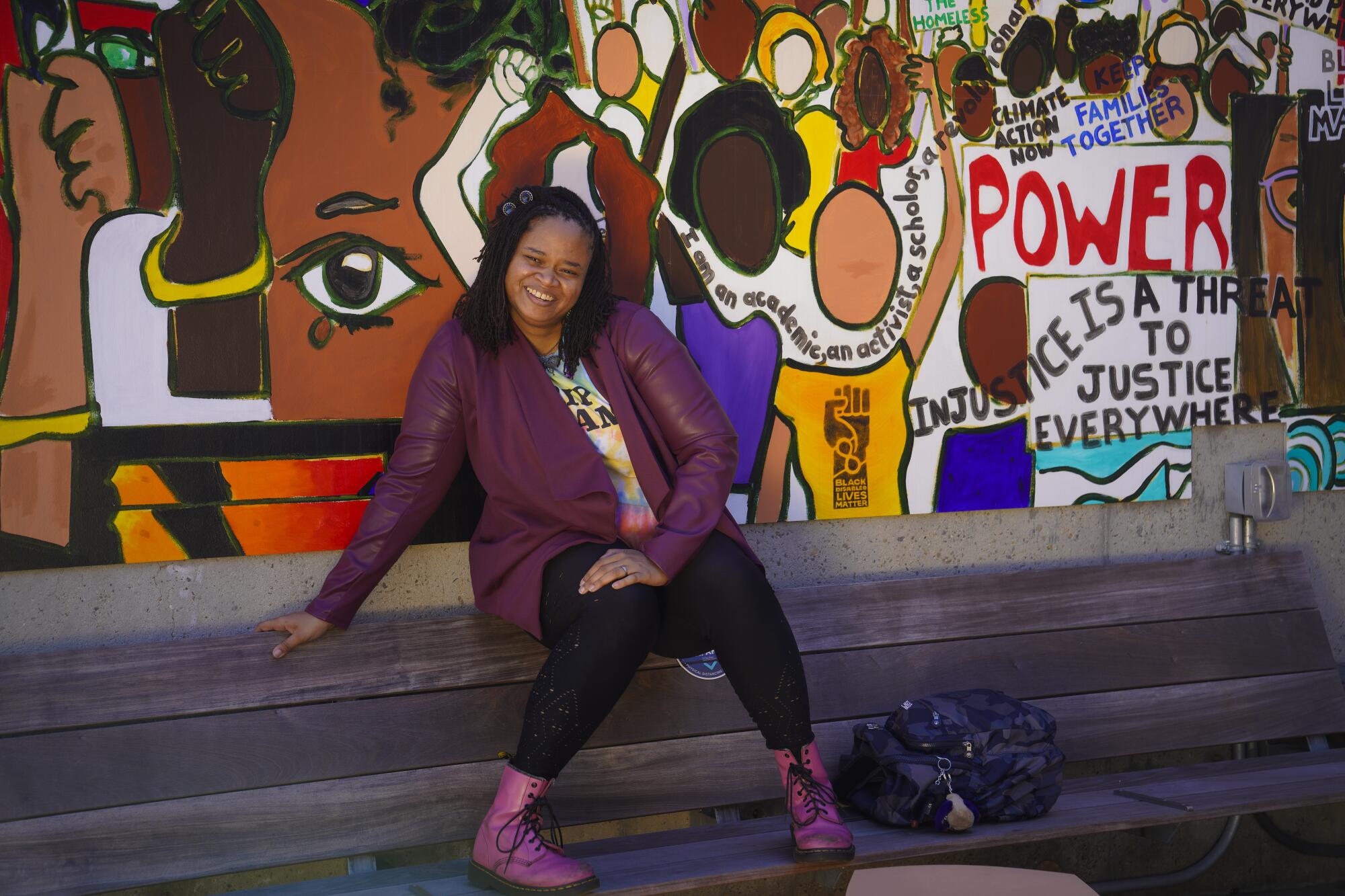
Syreeta L. Nolan of Chula Vista finds deep meaning in the UC San Diego mural that displays the symbol for “Black Disabled Lives Matter.” She regularly experiences physical pain from several medical conditions and is being tested for more. She said she has had difficulty accessing adequate health care while the hospitals remain impacted during the pandemic.
Advocates push for changes to keep vulnerable safe
One of the biggest changes disability advocates are pushing for is a general reshaping of the language used to discuss the impacts of the pandemic on immunocompromised and disabled people. Harris suggested that public health officials, from the local to the national level, hire and consult more people living with various disabilities to truly understand the myriad needs people have, especially those from diverse cultural backgrounds.
“Black people, Latinx people or Native Americans with certain disabilities are often at higher risk for a variety of reasons for a lot of the complications that come with COVID,” Harris said. “Having cultural competence at all of these spaces is really important, too.”
Advocates have said they’d like to see N95 masks — which have been deemed most effective at preventing the spread of the virus — sent directly to homes.
Recently, the Biden administration made 400 million N95 masks available for free, but recipients have to be able to travel to a participating pharmacy to get them. That can be an added barrier for someone with limited mobility or a potentially risky trip for someone who is immunocompromised and doesn’t already have a high-filtration mask at home.
The pandemic has been paired with one hidden benefit that many people with disabilities hope is here to stay: the normalization of working from home.
Disability advocates, Montoya said, had supported remote work options since the 1990s — and were constantly told it was an impossible request — before the coronavirus pandemic forced nearly all office jobs into the virtual space.
In many cases, remote work has now become the modus operandi for companies, many of which have no immediate plans to return to shared workspaces. For people with mobility challenges and certain health conditions, it puts them on the same playing field as their able-bodied peers and it’s a change they hope remains.
“It wasn’t until the pandemic began, and when work from home became mandatory, that I think corporate America is now seeing that it can be done, that it should be done, and more and more it’s looking like the American office is changing,” Montoya said. “It may sound kind of odd, but in a sense it’s a bit of vindication.”
Get CaregiverSD in your inbox on Mondays
Helpful tips, information and resources from caregiverSD.com in your inbox Monday mornings.
You may occasionally receive promotional content from the San Diego Union-Tribune.

